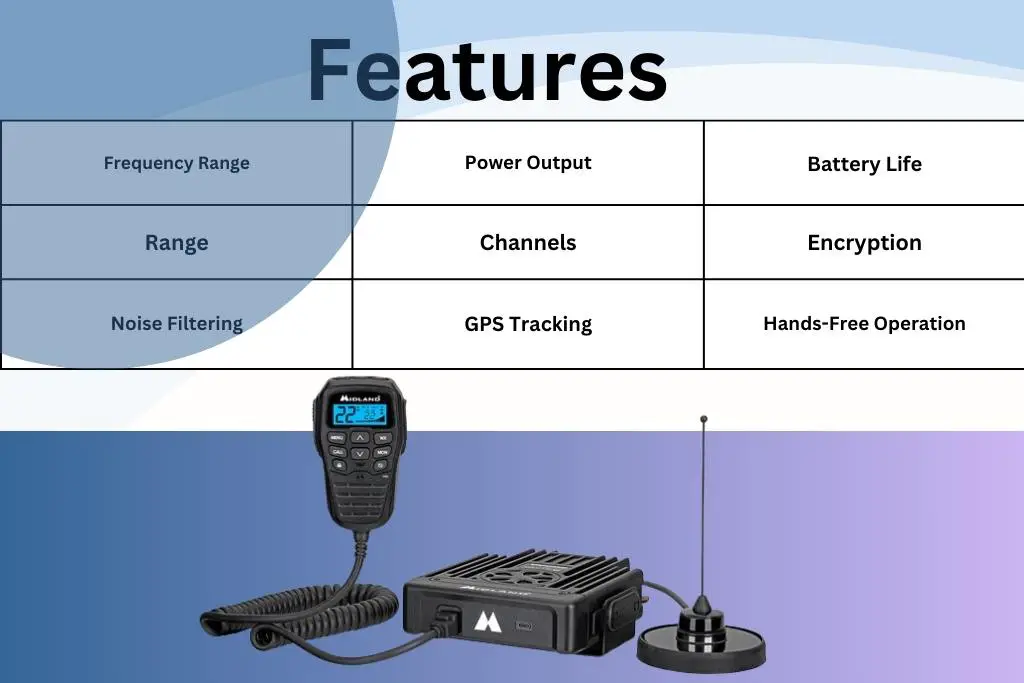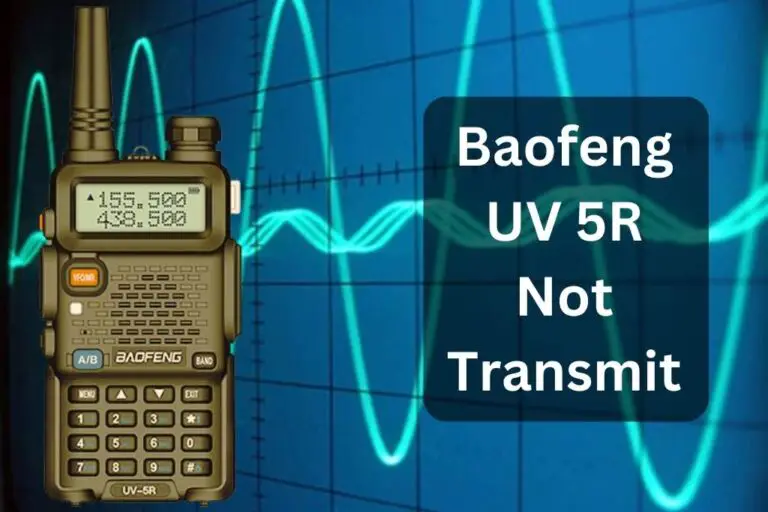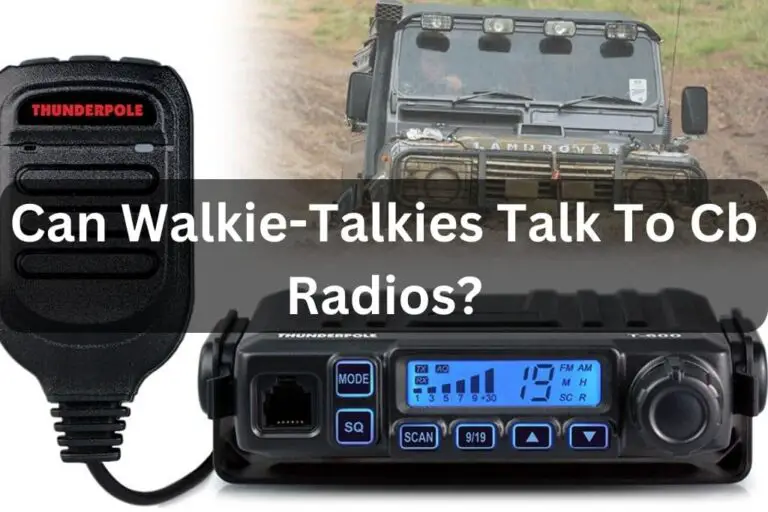What Is Two Way Business Radio?
As a business manager, effective communication is vital to the success of your organization. That’s why you might be considering investing in business radios.
Business radios, also known as two-way radios, are portable communication devices. They enable you to communicate with your employee or team in real-time, no matter where they are in your organization.
As I mentioned above, What Is Two Way Business Radio? In Short, Business radio refers to two-way communication devices businesses use to improve internal communication and coordination. They come in various types and present multiple characteristics to fulfill the unique needs of different companies.
They offer a quick and efficient approach to communicating with your team, improving coordination and productivity. In this guide, I’ll take you through the basics of business radio. This section will go through the many types and traits of business radio.
So, stay focused. Here, I have written all your needs with an explanation.
Two Way Business Radio Types And Features
Business radios come in various types and with multiple features, each designed to meet the specific needs of different organizations.
The most common types of two-way business radios include:
Analog radios are traditional two-way radio that communicates using analog technology.
They provide basic functionality such as push-to-talk and channel selection, making them straightforward.
These radios are perfect for small enterprises that require reliable communication but do not require complex features.
While analog radios have limited range and audio quality, they are nevertheless a cost-effective solution for small enterprises.
Digital radios, on the other hand, employ digital technology for communication and have more functionality than analog radios. They offer higher audio quality, longer battery life, and more excellent range.
GPS and data capabilities are also available on some digital radios. Digital radios are perfect for enterprises that require advanced features and long-distance communication reliability.
License-free radios are a good choice for small enterprises that don’t need a license to operate.
They have a limited range and power, but they are ideal for companies communicating within a restricted geographic area.

These radios are simple to operate and inexpensive, which makes them a practical choice for startups.
Portable radios are small and light, making them convenient to transport and used handed or with a belt clip for convenience.
Portable radios are suitable for enterprises that require mobile communication, such as security workers or event organizers.
Mobile radios are built into vehicles and are great for enterprises that need to communicate on the road. They feature more excellent range and power than portable radios and built-in antennas for better reception.
Mobile radios are critical for enterprises that require consistent communication while on the road, such as transportation or delivery services.
Push-to-talk is a popular feature that allows users to initiate communication by pressing a button on the radio.
Channel selection is another feature that allows users to switch between several communication channels.
Encryption, scrambling, and other security methods prevent communication from being intercepted.
Some corporate radios include GPS, which allows users to track the location of other radios in their network. Some digital radios have data capabilities to send text messages and other data.
The power output, antenna type, and other elements determine the range of a two-way business radio. Therefore, selecting a radio with a range that matches your demands is critical.
How To Choose The Right Two-Way Business Radio? (Considerations Before Buying)
Choosing the right two way business radio can be a daunting task. However, considering the following features, you may make an informed decision matching your company’s communication needs.
Frequency Band- Choose a frequency band suitable for your business’s location and communication needs. The most common frequency bands for business radios are VHF (Very High Frequency) and UHF (Ultra High Frequency). VHF radios are typically better for outdoor communication, while UHF radios are better for indoor communication and can penetrate walls better.
Range- Consider the coverage you need for your business radio. How far do you need to communicate? Short-range is sufficient if you use radios in a small office building. However, if you are speaking across large areas, you may need a radio with a more extended range.
Number of Channels- Consider the number of channels you need. Some business radios only have a few tracks, while others have dozens. The more media you have, the more options you have for communication, which reduces the likelihood of interference from other users.
Battery Life- Look for a radio with long battery life. If you use the radio for a full day of work, you want to ensure the battery lasts long enough. Getting you through the day without a recharge is the goal.
Durability- Consider the durability of the radio. If you want to use a radio in a dangerous area, ensure it withstands wear and tear. Look for radios rated for rugged use with a protective casing.
Accessories- Look for a radio with the necessary accessories, such as earpieces, chargers, and holsters. Check that the accessories you choose are compatible with the radio.
Cost- Finally, consider the cost of the radio. Business radios can range from a few dollars, depending on the features and quality, anything from a few hundred dollars. Determine your budget and find a radio that meets your needs within your budget.
In addition, when using business radios, it is essential to:
- Workers should receive instruction on how to use radios properly, including basic etiquette and safety precautions.
- Establish clear communication protocols, such as designated channels for specific purposes or designated times for radio use.
- Regularly maintain and test the radios to ensure they are in good working order.
- Observe all relevant laws and regulations regarding the use of radio frequencies, such as obtaining the necessary licenses or permits.
Consider the factors that will affect the use of business radios. Make the required preparation to ensure you are enhancing your investment. Utilize the radios efficiently and effectively.
Benefits Of Implementing Two Way Business Radio
Business radios are an essential tool for efficient and effective communication within a business.
Implementing business radios can offer numerous benefits to businesses of all sizes, including:
Business radios are cost-effective and efficient communication equipment that can bring several advantages to a firm. One of the most essential benefits of corporate radios is their capacity to boost productivity.
Employees may get instructions and cooperate seamlessly with quick and easy communication, resulting in a more efficient work process and improved decision-making.
Furthermore, business radios are especially vital in hazardous areas like construction sites because they can communicate swiftly during emergencies, boosting personnel safety.

Business radios can also result in significant cost reductions for a company. Business radios are frequently less expensive than traditional communication means such as cell phones or landlines.
Furthermore, they do not require costly infrastructure such as cables or networks because they operate on their frequency.
Business radios also provide enhanced privacy, which is essential in industries such as healthcare and banking.
Finally, company radio can improve customer service by allowing staff in consumer-facing roles to communicate quickly.
Corporate radios are a valuable tool that can improve cooperation, production, safety, and cost-effectiveness in various businesses.
Frequently Ask Questions
What Is A Business Walkie Talkie?
A business walkie talkie is a type of two-way radio designed for use in a business setting. It allows for real-time communication between employees, improving coordination and productivity.
Business walkie talkies are often more cost-effective and efficient than other communication methods.
Can I Play A Local Radio Station In My Business?
Yes, you can play a local radio station in your business. Copyright laws must be understood, nevertheless. Ensure you have the proper licenses to play music in a commercial setting.
Some companies subscribe to music streaming services that provide licensed music for commercial use.
Do You Need A Licence For Walkie Talkies?
Yes, you need a license to operate walkie-talkies in most countries. The requirements and regulations vary depending on the country and the frequency band used.
It is essential to check your area’s specific laws and regulations. Obtain the necessary licenses or permits before using walkie-talkies for business or personal use.
What Is The Best License Free Two Way Radio?
The best license-free two-way radio is subjective and depends on the user’s demands and requirements. Some popular options include the Motorola T600 H2O Talkabout Radio, the Midland GXT1000VP4, and the DeWalt DXFRS800.
These radios offer a range of features, including long-range capabilities, durable design, and clear communication.
It is significant to consider the user’s specific wants and requirements thoroughly. Before making a decision, a license-free two-way radio also be considered.
Final Thought : (What Is Two Way Business Radio)
Finally, now you know well two-way business radio? Business radio refers to two-way radios designed specifically for business settings.
They are a powerful and efficient tool for internal business communication, allowing for real-time staff communication.
They offer numerous benefits, including increased productivity, improved safety, enhanced coordination, cost savings, increased privacy, and better customer service. When choosing a business radio, it is essential to consider several factors.
These include frequency, range, number of channels, battery life, durability, accessories, and cost. Additionally, it is essential to follow proper protocols for use and observe all relevant laws and regulations.








